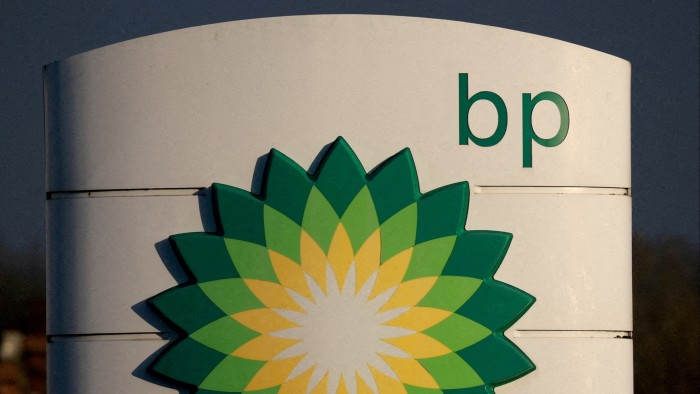Unlock the Editor’s Digest for free
Roula Khalaf, Editor of the FT, selects her favourite stories in this weekly newsletter.
Lower oil and gas prices are set to weigh on BP’s earnings in the second quarter, deepening the challenges for the FTSE 100 company as it tries to boost performance and preserve its independence.
In a trading update on Friday, the energy major said it expected earnings in its oil business to be $600mn-$800mn lower in the three months to the end of June than the previous quarter. It expects to report earnings between $100mn to $300mn lower in its gas business.
Crude oil prices fell in the quarter in spite of geopolitical tension, including Israel’s attack on Iran at the end of June, as the Opec coalition of oil producing countries continued to unwind production cuts. BP said the average price of Brent crude at $67.88 a barrel fell 10 per cent in the second quarter compared with the previous three months.
Meanwhile, mild weather in the US helped drive gas prices down by almost 6 per cent.
However, shares climbed 3 per cent in morning trading as the group surprised the market by saying its oil production had increased and signalled a “strong” result in its oil trading business.
BP said it was also expecting to report an almost 40 per cent increase in refining margins, to $21.1 a barrel. It added that it expected results from its gas trading business to be “average”. It is due to publish its second-quarter results on August 5.
The update comes as chief executive Murray Auchincloss comes under pressure to restore BP’s fortunes and preserve its independence amid persistent speculation that its weak share price is making it a takeover target. Shell last month declared it had “no intention” of bidding for the company following newspaper reports it had started takeover talks.
BP’s shares have fallen about 1 per cent this year compared with a 5.5 per cent increase for UK rival Shell’s and 6 per cent increase for US rival ExxonMobil, following years of underperformance.
BP has struggled to articulate a clear vision for its future after abandoning a pivot towards greener forms of energy earlier this year — a shift started by former chief executive Bernard Looney — in order to refocus much of its efforts on its traditional oil and gas business.
But weak oil prices are complicating that strategy. “If the oil price stays at this level for a year, BP will be in a desperate state,” one veteran investment banker working in the energy sector told the Financial Times last month.
In its own trading update this week ahead of quarterly results, Shell flagged “significantly lower” results from its gas trading division.
To try and bolster its balance sheet, BP has pledged to sell $20bn of assets by 2027, including its lubricants arm Castrol.
This week, it announced an agreement to sell its petrol stations and electric vehicle charging points in the Netherlands to Catom, for an undisclosed sum.

